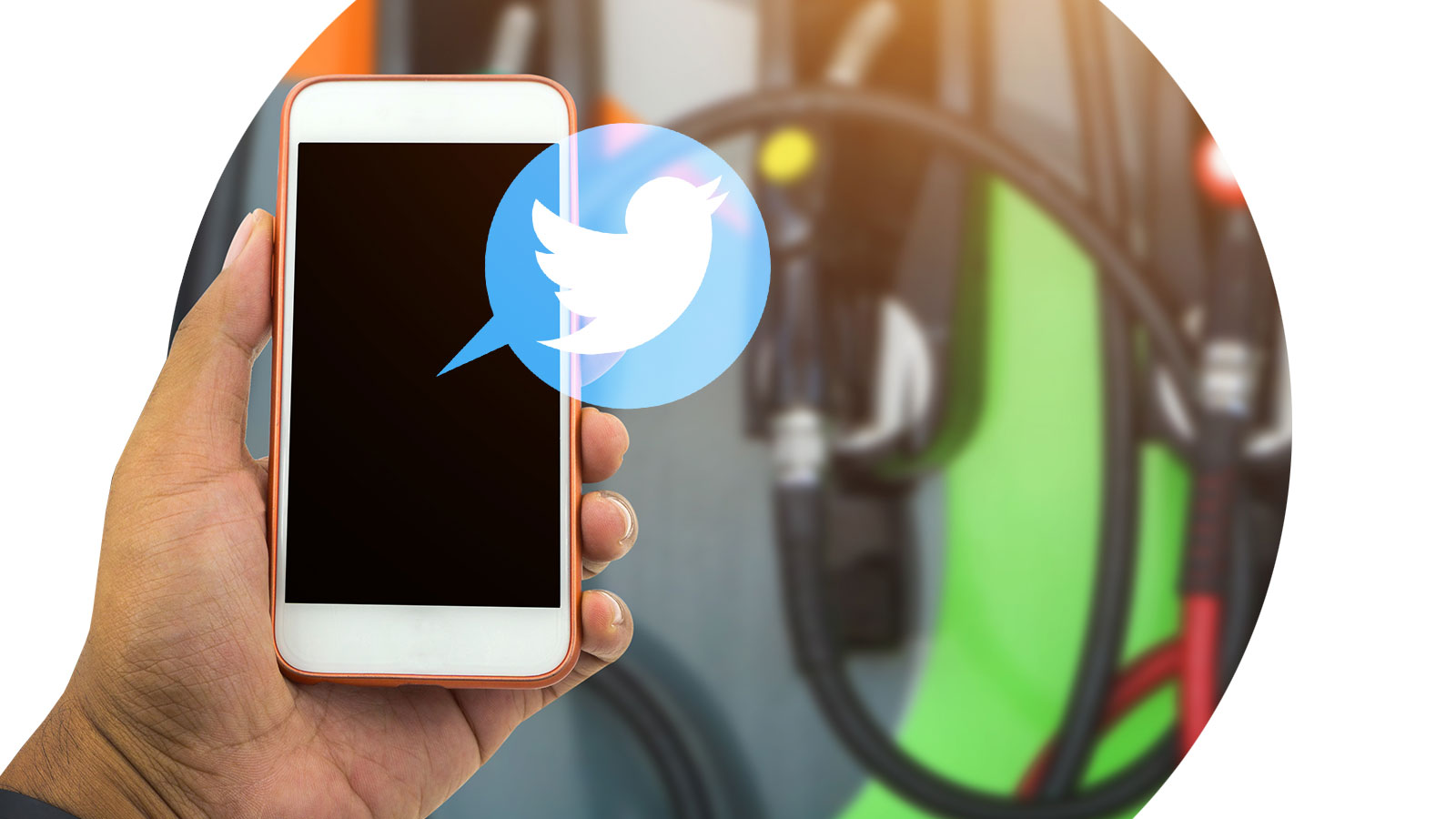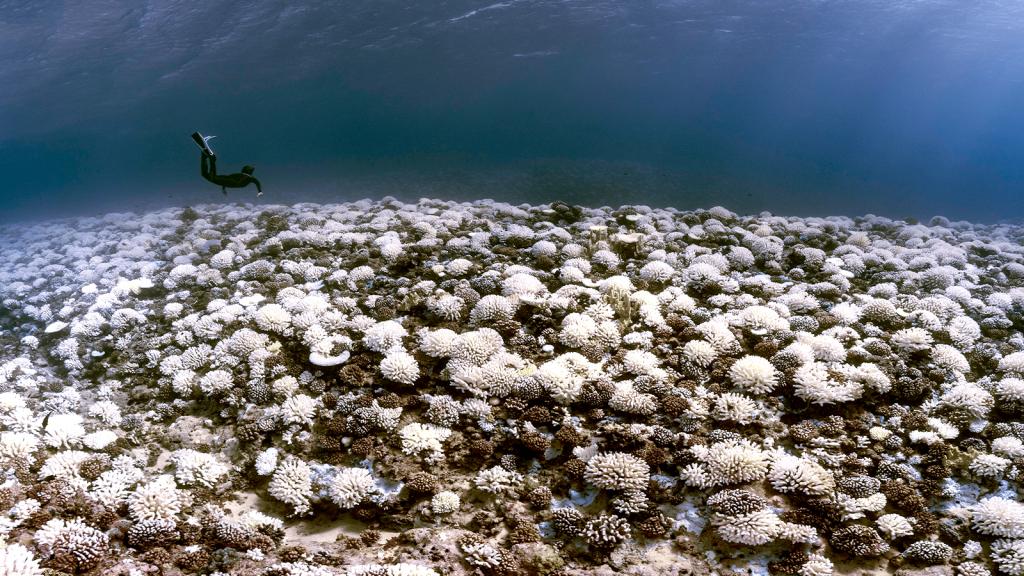Mary Heglar has a “maniacal plan” to save the planet. It doesn’t involve shutting down pipelines or protesting in the streets. Heglar has simply been “trolling the shit out of fossil fuel companies” on social media.
Heglar is known for her essays about climate change and for being one half of the duo behind Hot Take, a newsletter and podcast she co-hosts with the journalist Amy Westervelt. Her strategy started taking shape after the oil giant BP shared a carbon footprint calculator on Twitter last fall.

Courtesy of Mary Heglar
“Find out your #carbonfootprint with our new calculator & share your pledge today!” the oil company tweeted.
Hegar’s reply went viral. “Bitch what’s yours???”
“They can just walk out on the biggest arena in the world and pretend that they’re something that they’re not,” Heglar told Grist. “And it’s really persuasive. If I didn’t know better, I would believe that BP was on the right side of history.”
Heglar was tired of climate-conscious people turning against one other, shaming others for flying or eating meat. Instead, she wanted to direct their anger at the companies responsible for the largest share of global greenhouse gas emissions. So she started prowling the social media feeds of Shell, Chevron, BP, and ConocoPhillips every day to point out their hypocrisy. (She can’t see Exxon’s tweets anymore, because she got blocked.) “I’m petty like that,” she said. “I am a Scorpio and I am vindictive.”
Geoffrey Supran, a research associate at Harvard University who studies the propaganda tactics of fossil fuel interests, sees this approach as a way for people to “fight back” against Big Oil’s messages. “Until recently, fossil fuel propaganda was almost entirely a one-way street,” Supran said. You can yell at the TV when Exxon advertises how it’s funding an algae-powered future, but no one’s going to hear you (except maybe your family).
“Trolling” used to refer to pranking people online by baiting a reaction. Now it’s taken on a broader meaning, referring to any sort of disruptive or insulting behavior. If you voted for President Donald Trump even when you didn’t want him in office, you’re trolling Democrats. When former President Barack Obama takes a jab at his successor — yep, that’s apparently trolling too. Trolling can even be righteous: a sometimes comedic, sometimes combative attitude that takes on powerful interests and lays hypocrisy bare. It’s a technique used in sketch comedy and in late-night talk shows, like John Oliver’s Last Week Tonight.
“Greentrolling,” as Heglar describes it, is a way of letting off steam. But there’s a deeper motivation behind it. The point isn’t to convince oil companies to do better. It’s to make sure that people aren’t misled by corporate PR teams — to try and shatter the idea that they’re champions of the environment, and point out the ways they shift blame to individuals to avoid accepting responsibility for their role in the climate crisis.
Greentrolling is catching on. Earlier this month, Shell tweeted a poll asking “What are you willing to change to help reduce emissions?” Every corner of Climate Twitter had something to say about it. “This you?” said climate activist Jamie Margolin, sharing a photograph of a 2016 Shell oil spill in the Gulf of Mexico. The Sunrise Movement tweeted, “omg cute!! we’re still gonna prosecute your execs for lying to the public about climate change for 30 years though!!!” Swedish activist Greta Thunberg and Democratic Representative Alexandria Ocasio-Cortez of New York also chimed in.
It was the first time that an oil company had “ever faced significant backlash for greenwashing on social media,” according to Heglar. For days afterward, Shell, Exxon, and Chevron stayed silent on Twitter.
For more than a century, the fossil fuel industry has been fine-tuning its propaganda machine. From 1986 to 2015, Big Oil spent more than $3.6 billion on ads to clean up its image. This often took the form of “greenwashing” — a type of spin that gives the appearance of environmental responsibility while destruction continues behind the scenes.
You might not know that oil companies were still mainly in the oil business by reading their tweets. Abbey Dufoe, a digital content strategist at the Center for Climate Integrity, recently analyzed six months’ worth of Big Oil’s posts. Dufoe found that Exxon, BP, Shell, and Chevron were tweeting about drilling operations and gas stations about 8 percent of the time. The rest of their feeds told stories about renewables, carbon capture, the ostensible cleanness of natural gas, and so on.
People appear increasingly aware of these public relations tricks. Over the past decade, Americans’ support for oil production has dropped considerably. Oil companies are now one of the least-trusted industries. If public support craters, as some industry leaders worry it might, oil companies could be in trouble, with their share prices plummeting and employees quitting their jobs.
Social media is uniquely positioned to break through the air of legitimacy that these companies have created, called the “social license to operate” in industry-speak. Twitter gives critics a space to express their opinions, and outrage spreads fast (for good or ill). Greentrolling “has an outsized impact because it creates a spectacle that disrupts the conversation and draws media attention,” Supran said. “Twitter and other platforms become social awareness systems for debunking disinformation, unmasking systems of power, and driving media scrutiny to otherwise underreported issues.”
It sounds like a compelling case for an army of pro-climate trolls, though there may be reason to hesitate. “Social media in general, and Twitter certainly, has not proven to be a place for constructive, meaningful dialogue,” said Jill Hopke, an assistant professor of communication at DePaul University.
“What actually is going to move us as a country, as the world, toward meaningful climate action?” Hopke asked. “I’m not convinced that engaging in any kind of trolling behavior is going to do that.”
Others make the case that Big Oil’s steps toward sustainability should be recognized — at least it’s something. This year, several oil companies announced pledges to work toward net-zero emissions (although when you read the fine print, some of those promises sound less impressive).
Heglar is unsatisfied with their incremental steps, to put it mildly. “The whole entire world is on fire,” she said. “And they knew about this shit decades before the rest of us. So no, you should have been leaps and bounds ahead of everyone else. You could have stopped this whole entire crisis. And now you want to wait until we’re at the tipping point, and you want to talk to me about a f***ing hydrogen farm in China?”


